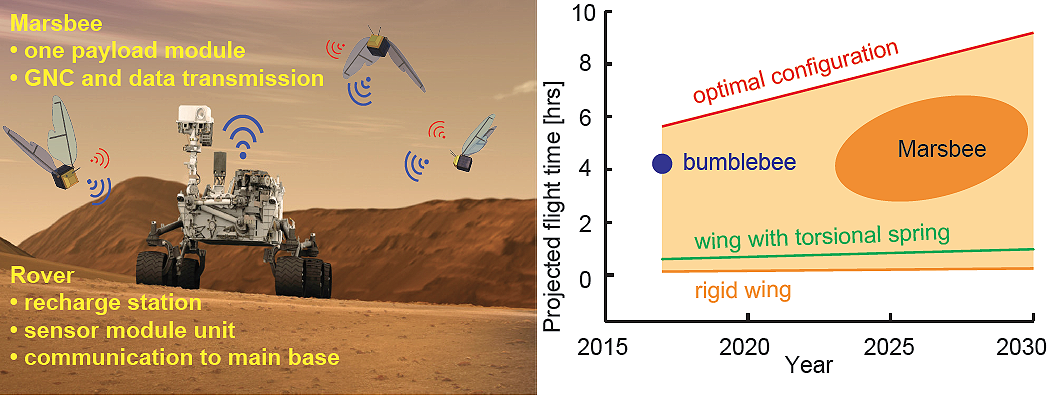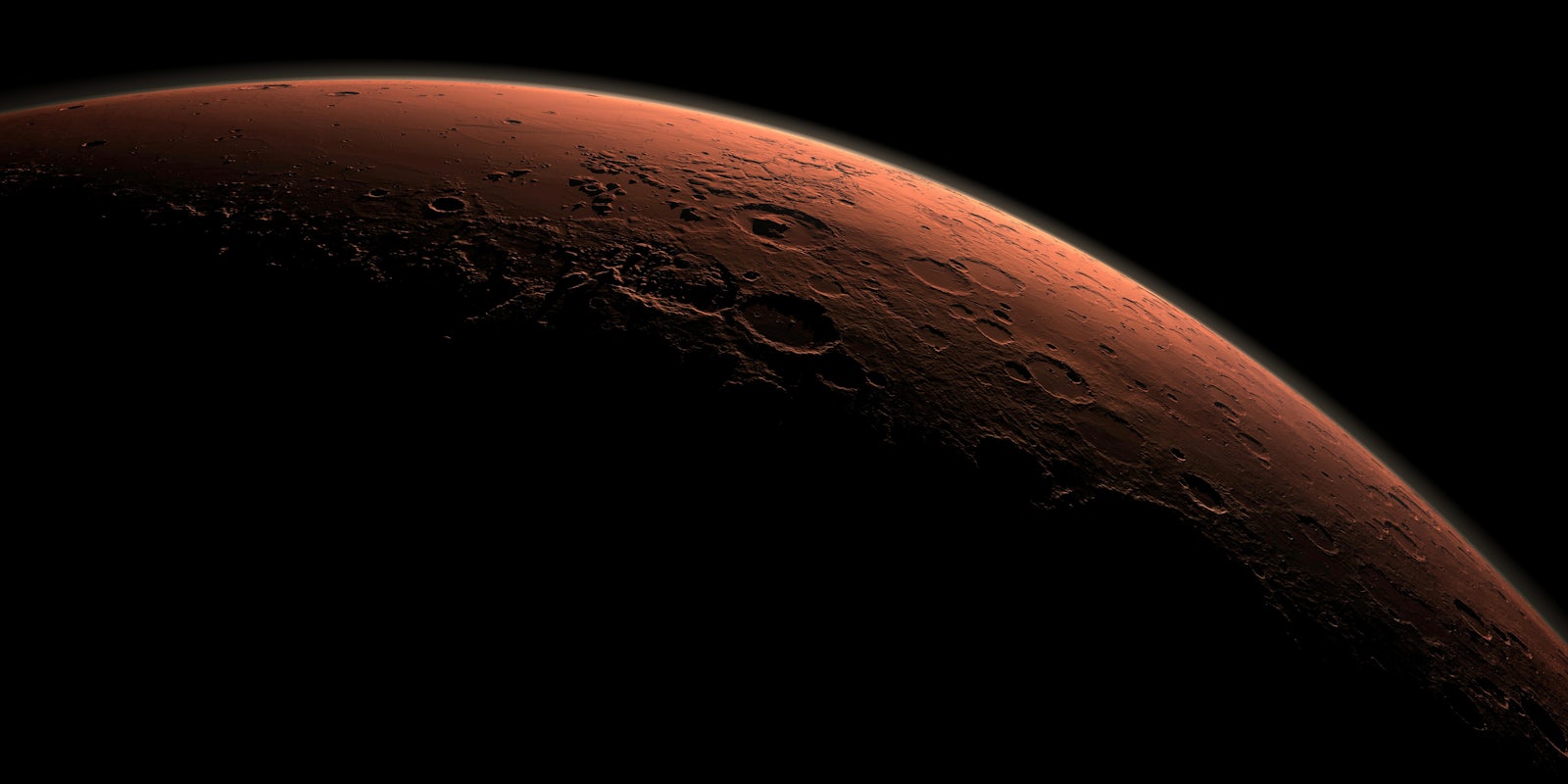NASA will potentially send robotic bees to Mars to explore and analyze data, which will surely have everyone buzzing.
First announced March 30, the project, which is titled “Marsbee,” is among the 25 proposals selected by NASA to support and advance space exploration. The winners are granted $125,000 over nine months to work on their concepts, and those that have successful “feasibility studies” are able to apply for another award.
The concept behind Marsbee is that multiple bee-like robots, which are shaped like bumblebees and have wings, will use a rover on Mars to connect, communicate, and recharge. The project breakdown, which is written by Chang-kwon Kang of University of Alabama, Huntsville, reveals its plans for the next phase of development: testing the robotic bees’ ability to move in Mars’ atmosphere with the aid of a team from the U.S. and Japan.

“The objective of Phase I is to determine the wing design, motion, and weight that can hover with optimal power in the Mars atmospheric condition using a high-fidelity numerical model and to assess the hummingbird MAV in the Mars conditions,” Kang wrote.
According to the Guardian, the robotic bees could be used to detect the presence of Methane emissions in the air, which could determine if there are any signs of life on Mars. It’s unclear how the project will fare going into the next phase, but you can’t beat the visual of sending a bunch of robotic bees to Mars.
H/T Gizmodo


